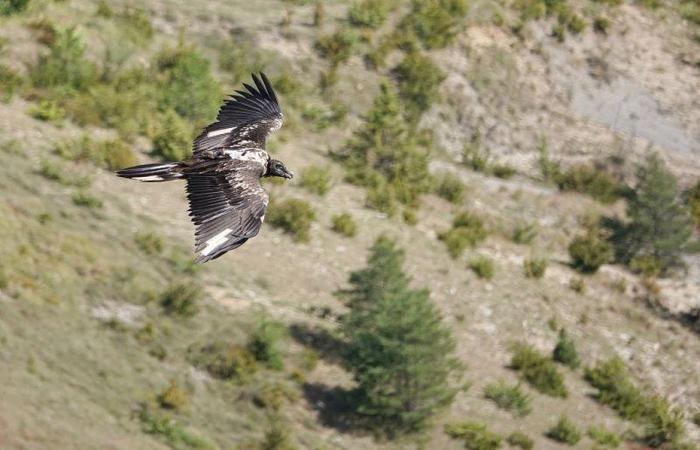
Rei del Causse, a young bearded gypatus, one of the rarest vultures, had become emblematic by his trips across Europe. The Cévennes National Park announces its death, this Tuesday, May 6, and traces the history of the raptor.
Most of the day: our exclusive selection
Every day, our editorial staff reserves you the best of the regional info. A selection just for you, to stay in connection with your regions.
France Télévisions uses your email address to send you the newsletter “The essentials of the day: our exclusive selection”. You can unsubscribe at any time via the link at the bottom of this newsletter. Our Privacy Policy
On January 20, 2025, the lifeless body of this young male three years old was discovered in Lozère. It is thanks to the data transmitted by its GPS tag that its unusual inactivity was detected, immediately triggering a series of investigations. Despite the rapid mobilization of the teams, the precise causes of his death remain indeterminate to date.
Rei Del Causse will only have lived three years, but its history will permanently mark those who have crossed its path. There will remain the symbol of a free, curious, resilient – and hope for the reintroduction of gypaets in our mountains.
Cévennes National Park
Rey del Causses
•
© Caroline Devevey – Cévennes National Park
The specialists and scientists of the Cévennes National Park and the Bird Protection League wondered about the causes of this premature death and started many exams. The veterinary investigation was meticulous.
-- No hunting lead was found.
- Toxicological and virological analyzes have proven to be negative.
- The bird had good physical condition: well -developed muscles, presence of fat.
- An internal sub-sternal hemorrhage has been detected, possibly following a fall, without clearly identified cause.
- Benign liver lesions have been observed, frequent in birds, but not responsible for death.
Despite these efforts, no specific origin for the fall or the hemorrhage could be identified. The mystery remains whole.
Even if the exact cause of his death remains unknown, the absence of traces of malicious or poisoning constitutes a certain relief. Rei’s fate, however, recalls the fragility of these large gliders, and the importance of continuing reintroduction and follow -up efforts.
Cévennes National Park
Born in Haute-Savoie in Asters’ breeding center, Rei del Causse had been released in May 2022 in the Great Causses. Very early on, he turned out to be a tireless explorer.
In June 2023, he began a long journey north of Europe, reaching the Rügen peninsula in Germany. Exhausted, he was saved by the German association Tierrettung and repatriated to France, where he found forces at the LPO Paca care center before being released in July.
Barely recovered, Rei Handmore: Belgium, Germany, then Poland. It is Poznan he is talked about, stopping on the edges of the window of an urban building. Again in difficulty, he was collected at the city zoo and then reintroduced again in the Grands Causses in the summer of 2024.
Since his return to France, Rei seemed to be well readjusted to wild life, circulating between the Tarn gorges, the Jonte and the Tarnon valley. His death, which occurred only a few months after his last release, arouses great emotion among the actors of conservation.
“It is a great loss. But it is also a story that testifies to the strength of European collaboration in favor of biodiversity. Rei has mobilized teams throughout the continent, and his memory will continue to inspire our commitment“, conclude specialists.







